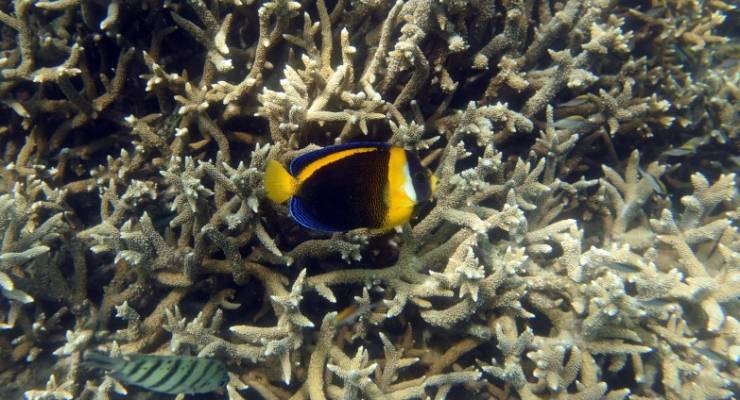
Next Thursday will be an important milestone for Australia’s marine protection, as parliament decides whether to keep in place 44 new marine parks around Australia’s vast coastline, or chuck them all in and start from scratch.
As someone who depends on these protection zones for my livelihood, particularly those within the Coral Sea Marine Reserve, I am urging those in Canberra to consider the ramifications of such a drastic approach.
It is important to recognise that we have not arrived at this decision suddenly. After a decade of consultation with stakeholders from a variety of user groups including recreational and commercial recreational fishermen, scuba diving tour operators, regional communities, scientists and environmental groups, Parks Australia released details on the newly proclaimed Coral Sea Marine Reserve on July 1 this year. A final decision was made on the importance of protecting not just our pristine marine environments, but also the thriving industries that rely on them.
As with most political issues, it would be impossible to satisfy all user groups, scientists or environmentalists, owing to the simple fact that each group has, in many cases, completely opposing needs or hopes for the same tract of ocean or reef. Some hoped for a status quo, while others hoped for a higher level of protection. Ultimately, all user groups had a common desire, which was to assure reasonable access to their historic practices and, at the very least, maintain if not improve the biodiversity of this incredible resource for future generations.
As an operator of a recreational scuba diving vessel, I treat very seriously my responsibility to employ a “look don’t touch” approach, to ensure ongoing protection of the fragile ecosystem that provides my own livelihood. I work alongside other operators who offer charter fishing tours, which is so often a necessary compromise, and part of a complex, functioning economy. Ultimately, we agree or agree to disagree, all looking at the greater good and the need to adapt and move forward, in this case, for sake of the environment.
Eco tourism brings millions of dollars into Australia every year. Shark tourism in particular is very high on the agenda of internationally well-travelled scuba divers. With the proclamation of the marine park comes with it the entire protection of what is often referred to as “the jewel in the crown” — Osprey Reef.
Seventy miles beyond the Great Barrier Reef, Osprey is one of the many offshore reef systems teeming with life. It has spectacular walls adorned with soft and hard corals, large schools of fish and a thriving resident grey reef shark population at the famous “North Horn” dive site. The reefs of Holmes and Flinders, adjacent to Cairns and Townsville, are zoned to allow access for recreational and commercial recreational fishing. As dive operators we had hoped that these important reefs would at least have some sanctuary protection, but that’s something we’ll have to work towards in the future. The open oceans have also been zoned to allow fishing to take place, ensuring that we can still eat freshly caught Australian fish.
While it may be fair to say that the current government’s marine park commitments could certainly go further, it is vitally important that we don’t just accept this proclamation as the final chapter.
The confirmation of these protection zones mean that we can now measure just how we impact and how we can further improve a sustainable future. It is not possible for a “one size fits all” marine park, but we’re heading in the right direction. This current proclamation and zoning must stand, or we risk going back to where we were a decade ago — no protection for the Coral Sea. In this current and dramatically changing climate, we can ill afford the time to go back to the drawing board.
Ultimately, this will be a threshold test of whether we are willing to throw the baby out with the bathwater. My hope is that the effective collaboration and compromise that I engage in with my local community of tourism operators, fishers, scientists and environmentalists can serve as an example for political operators within the halls of Canberra. Ideological battles and personal legacy concerns will do nothing to ensure the extreme fragility of our reefs and marine environments are protected.
Craig Stephen is a scuba diving operator from Cairns and president of the Cod Hole & Ribbon Reef Operators Association.







The only part of your article I disagree with is when you refer to the possibility that the current govt will further the protections already in place. I’m no fortune teller but they certainly will not and yes what has already been worked out needs to be upheld. All the best.